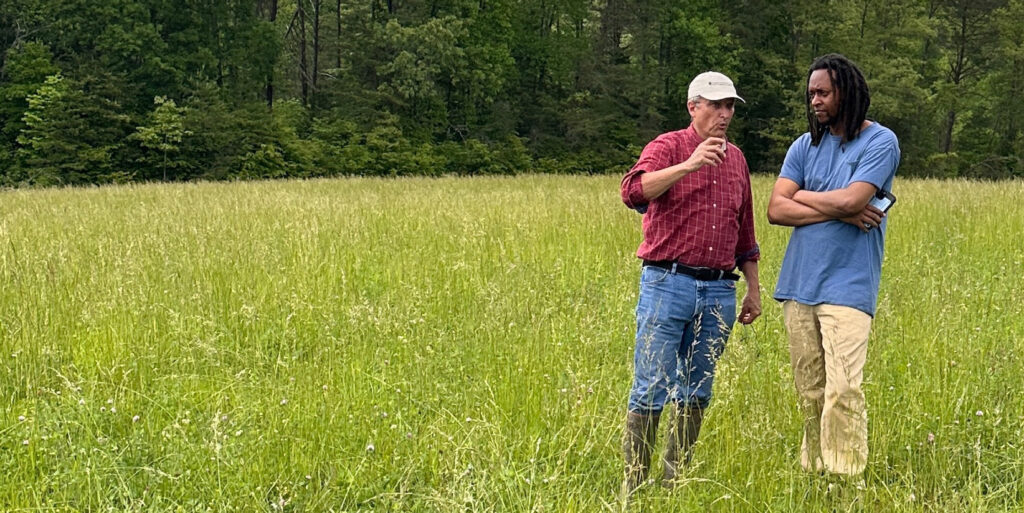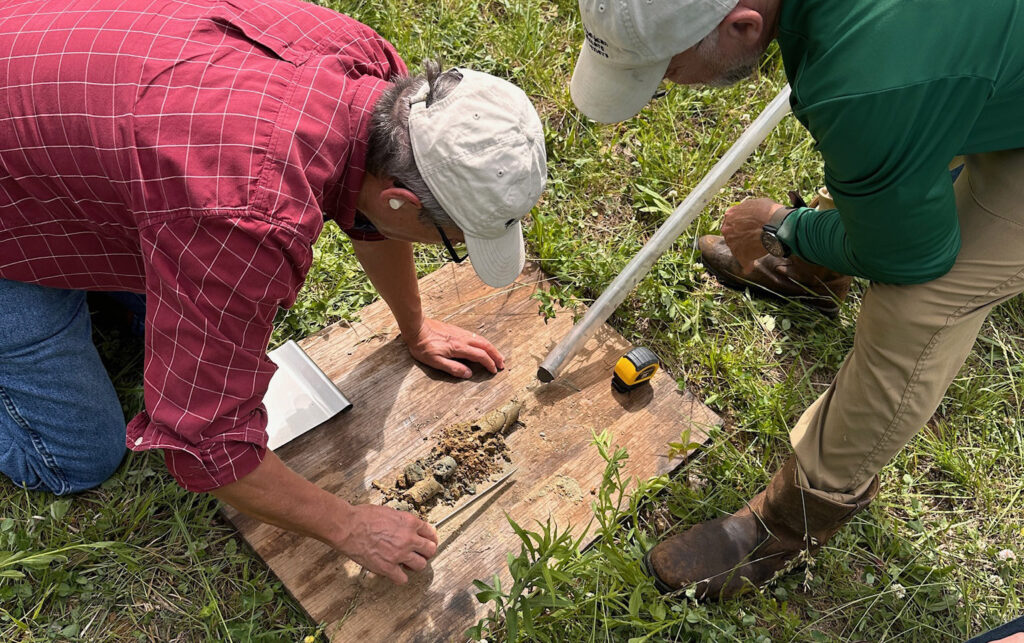
Since 2011 American Climate Partners, through its SoilKeepers program, has been providing residential, commercial, agricultural, and conservation services to Virginia landowners that provide the twin co-benefits of atmospheric carbon sequestration and enhancement of land and water biodiversity. As a direct result of our services, our landowner clients have captured carbon and created grassland and pollinator habitat on over one thousand acres, most in rural areas of Virginia.
Tapping lessons learned from this decade of vegetation and soil health management experience and our resulting knowledge and expertise, we’re now working with partners across the entire Southeastern United States, including Alabama, Arkansas, Florida, Georgia, Kentucky, Louisiana, Mississippi, North Carolina, South Carolina, Tennessee, Virginia, and Puerto Rico. In 2023 the USDA’s Natural Resources Conservation Services selected American Climate Partners as one of four partnerships to support and expand measurement and monitoring of carbon in soil on working agricultural lands and to assess how climate-smart practices are affecting carbon sequestration.
Healthy soil grows robust crops cost-effectively and captures atmospheric carbon
Our approach to the project, takes on a wider scope. By understanding carbon and other soil nutrient and biology levels deep in the soil profile and actively storing captured carbon, farmers can increase plant nutrient density and position themselves to access emerging agricultural and ecosystem services markets. Calling the agricultural and forestry practices that create healthy soil carbon farming, American Climate Partners has formed the Carbon Farming Partnership, providing a smart soil management strategy that can help set “producers” – farmers and ranchers – on a path to a future of more sustainable and more profitable farming.
In its initial phases, the project is assisting farmers with a trio of synergistic baseline soil tests using NRCS’s Conservation Evaluation & Monitoring Activities (CEMAs), which provide financial assistance to:
- measure soil organic carbon stocks before and after implementation of a conservation plan
- measure soil nutrient levels
- gauge soil health through its physical, biological, and chemical characteristics
American Climate Partners is expanding its team across the region with Conservation Agronomists to providing educational workshops, demonstrations, and consultation to help producers understand, assess and monitor:
- the impacts of climate-smart practices on soil carbon sequestration (storing captured carbon)
- the role carbon plays in building soil health and plant nutrients
- increased agricultural productivity, resiliency, revenues, and soil-based climate change mitigation

In time, as we accomplish the goals NRCS has set to expand a national carbon monitoring network across agricultural lands with baseline soil testing, ACP will be on hand to offer companion services to producers who want to utilize deep soil monitoring to seize the enormous existing productivity and cost-saving benefits — and emerging revenue opportunities — of carbon-smart, climate-smart farming. All while supporting our intention is to help landowners immediately implement once in a generation achievable, common sense, natural carbon capture solutions to move fossil-based atmospheric carbon down into soil carbon pools to meaningfully contribute to climate restoration.
To learn more about American Climate Partners’ work with USDA and NRCS on the Carbon Farming Partnership visit carbonfarmingpartnership.org or write to info@carbonfarmingpartnership.org.
